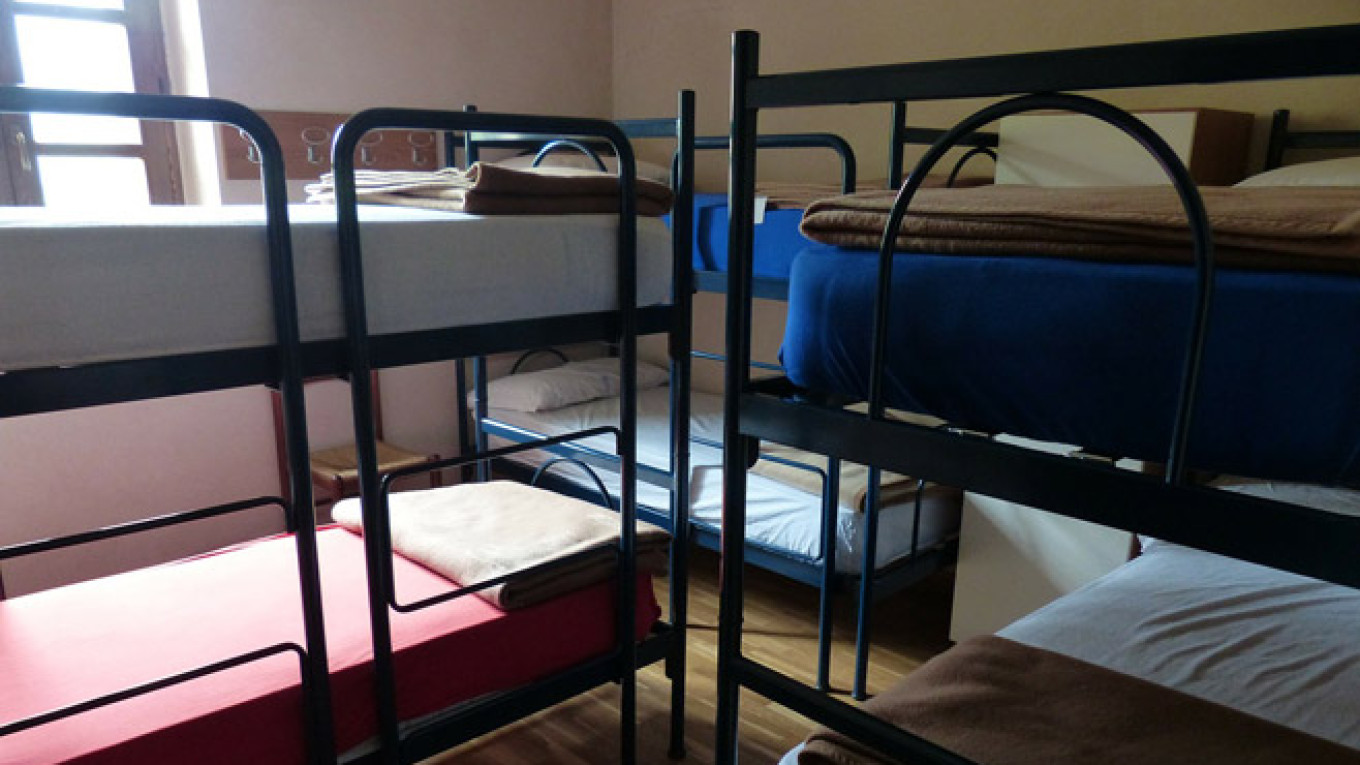Russian lawmakers are gearing up for a battle against hostels in residential buildings, claiming the budget accommodations are a plague on the buildings' other residents even as critics say the real issue is the deputies' dismissive attitude toward small business.
Galina Khovanskaya, chairman of the State Duma's housing committee and a member of the A Just Russia party, on Wednesday called on Interior Minister Vladimir Kolokoltsev to launch a battle against hostels located in residential buildings.
Some people living in apartment blocks "have the misfortune of living next to hostels," which offer the services of hotels in defiance of housing legislation, Khovanskaya said at a meeting devoted to the problem.
Of the 280 hostels in Moscow, more than 200 are located in residential buildings, and it is obvious to everyone except their owners that it is impossible to live there, Khovanskaya said. The behavior of lodgers leaves much to be desired — they indulge in "drugs, alcohol and hooliganism," she said.
"Members of the presidential administration are complaining, they say they are afraid to go into their own entryways in upscale buildings. The topic demands serious legal changes," agreed committee member Yelena Nikolayeva from the United Russia party.
In the opinion of Moscow City Duma Deputy Yaroslav Kuzminov, this won't be a catastrophe for small business. Hostels make up 20 percent of the hotel market, and hostels in residential houses — just 5 percent, he said.
The deputies want to ban hostels in residential houses or to allow them only with the unanimous consent of residents. They also want to toughen rules on reregistering apartments as non-residential real estate and to limit the number of people who can stay in a hostel.
A spokesperson for the Prosecutor General's Office said they had received essentially no complains from citizens. However, Khovanskaya said that, following up on a complaint from a State Duma employee, she had already been able to shut down one hostel with the help of prosecutors.
There's a grain of truth in the deputies'? grievances, said Alexander Kryukov, owner of the Novaya Gollandiya hostel in St. Petersburg. "I thought about the neighbors, it's for this reason that my hostel is on the first floor and has a separate entrance," he said.
"It's too bad that, as soon as people really started getting involved in hostels, State Duma deputies immediately decided to regulate. They should have set the rules of the game beforehand, not after a ton of people have already poured their efforts into it."
Alyona Yenova, owner of the Taiga hostel, had other objections. "Three hostel associations tried to get into that meeting with Khovanskaya, but none of them were allowed in," she said.
"The people on the committee are theorists, while hostels were thought up by entrepreneurs. How can you solve something if you don't invite the people who have encountered these problems in practice?" Yenova said.


